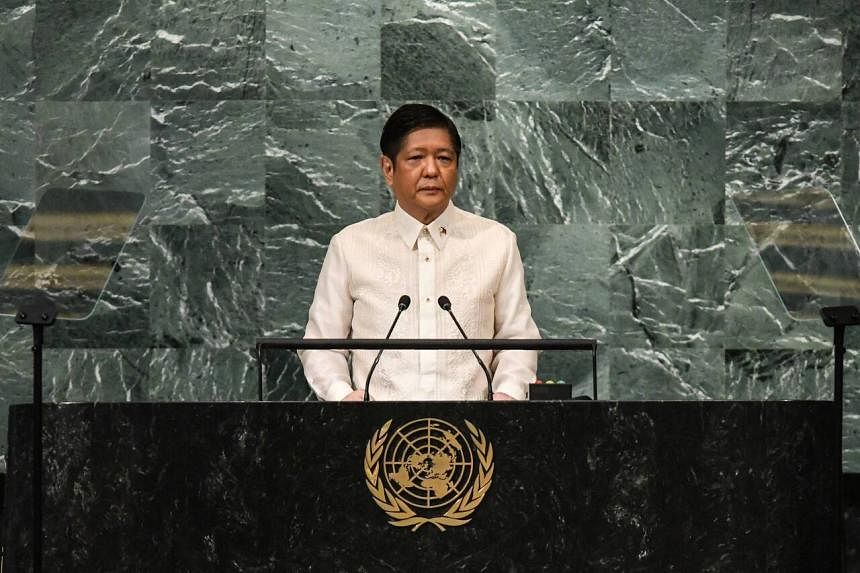NEW YORK - Philippine President Ferdinand Marcos Jr pushed for climate financing from developed nations in his first major speech before world leaders, urging that the "historical injustice" caused by global warming be rectified.
The Philippines is among the developing nations - responsible for just a fraction of greenhouse gas emissions - that are pushing their case for more funds from industrialised countries that have prospered for more than a century.
In his address to the United Nations General Assembly, Mr Marcos called on those countries to cut their carbon emissions and transfer climate adaptation technology to the most vulnerable nations.
"The effects of climate change are uneven and reflect a historical injustice," he said. "This injustice must be corrected, and those who need to do more must act now."
Mr Marcos said the Philippines is a net carbon sink, absorbing more than it emits, but it is increasingly exposed to climate change.
The Philippines is the fourth most vulnerable to floods and storms, according to Fitch Ratings' climate change physical risk exposure heatmap rankings.
An average of 20 cyclones pass through the country annually.
The Philippines has already incurred US$10 billion (S$14 billion) in losses from climate-related hazards over the past decade.
Mr Marcos also called for investments to modernise agriculture and ensure food security.
He said he is looking forward to partnering with the UN and other countries to boost agricultural productivity, which is among his campaign pledges.
His new government is facing economic challenges, including food shortages and above-target inflation, as the world reels from the impact of Russia's invasion of Ukraine and the pandemic's lingering effects.
The late dictator's son and namesake has made the rare move of helming the Agriculture Ministry, as he pushes for food security.
Still, the Philippine economy is expected to grow above 6 per cent this year, in line with its pre-pandemic level, as businesses reopen from strict pandemic restrictions.
Mr Marcos' economic team is aiming for economic growth of at least 6.5 per cent annually through 2028. BLOOMBERG

